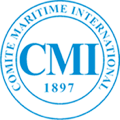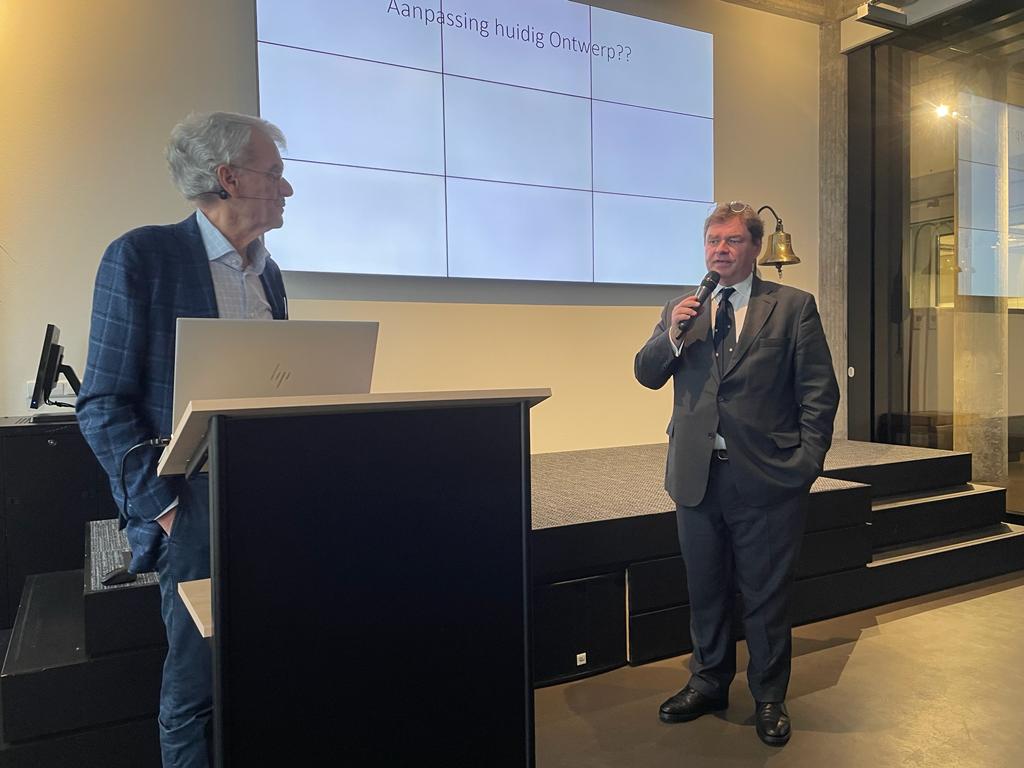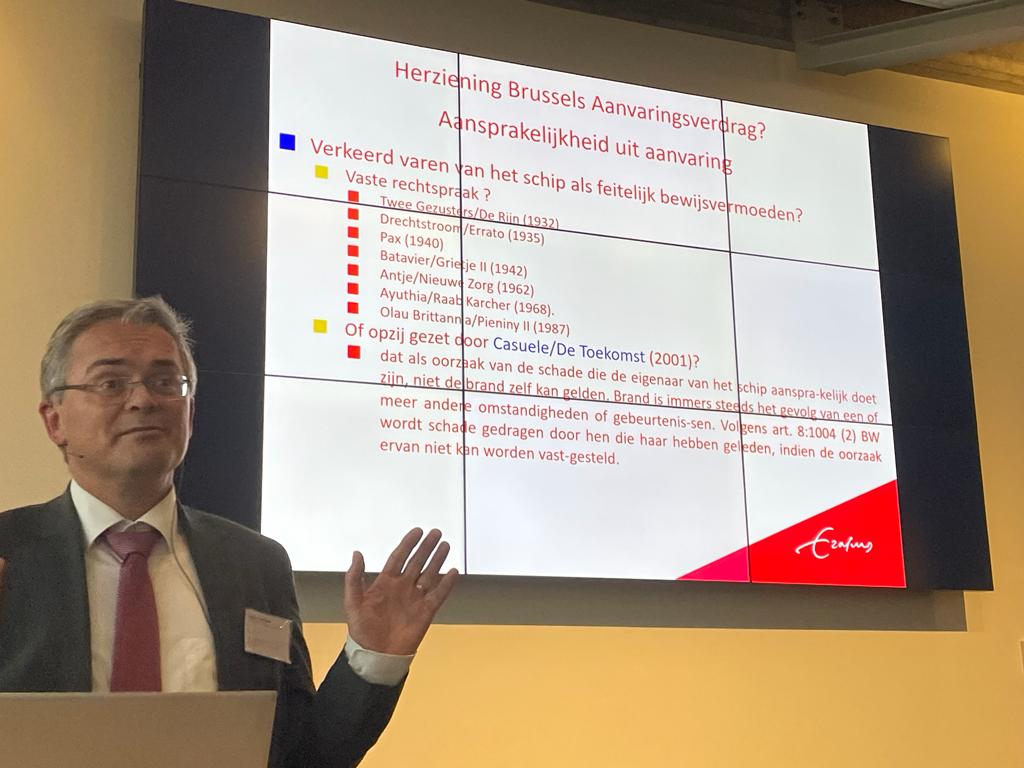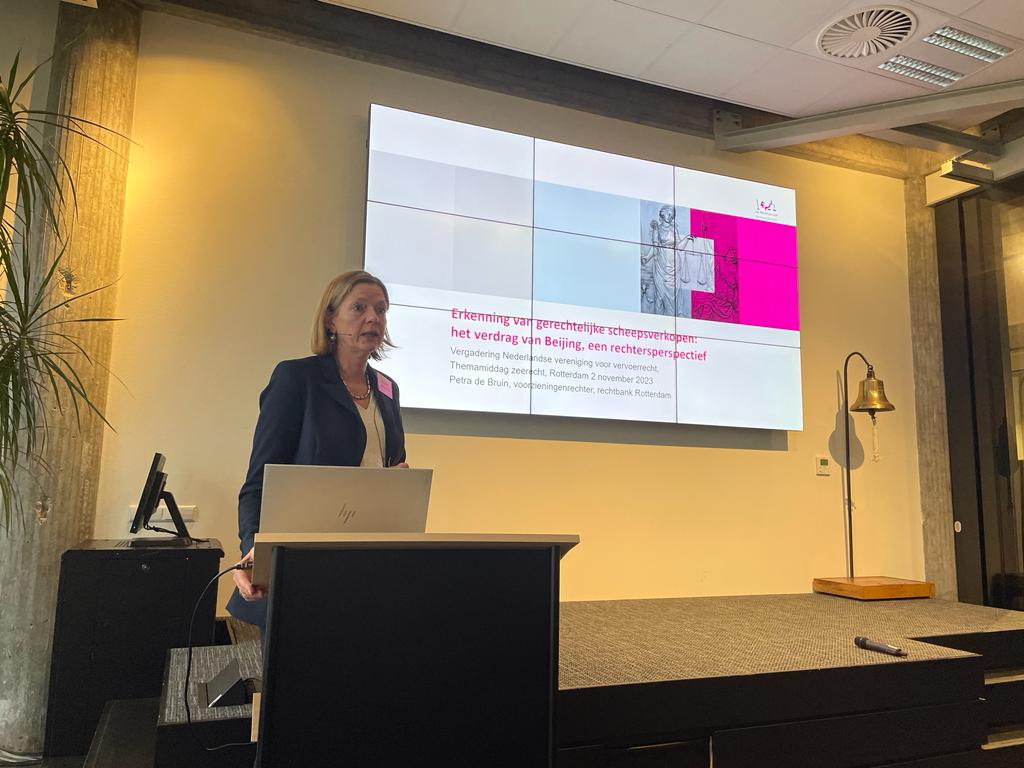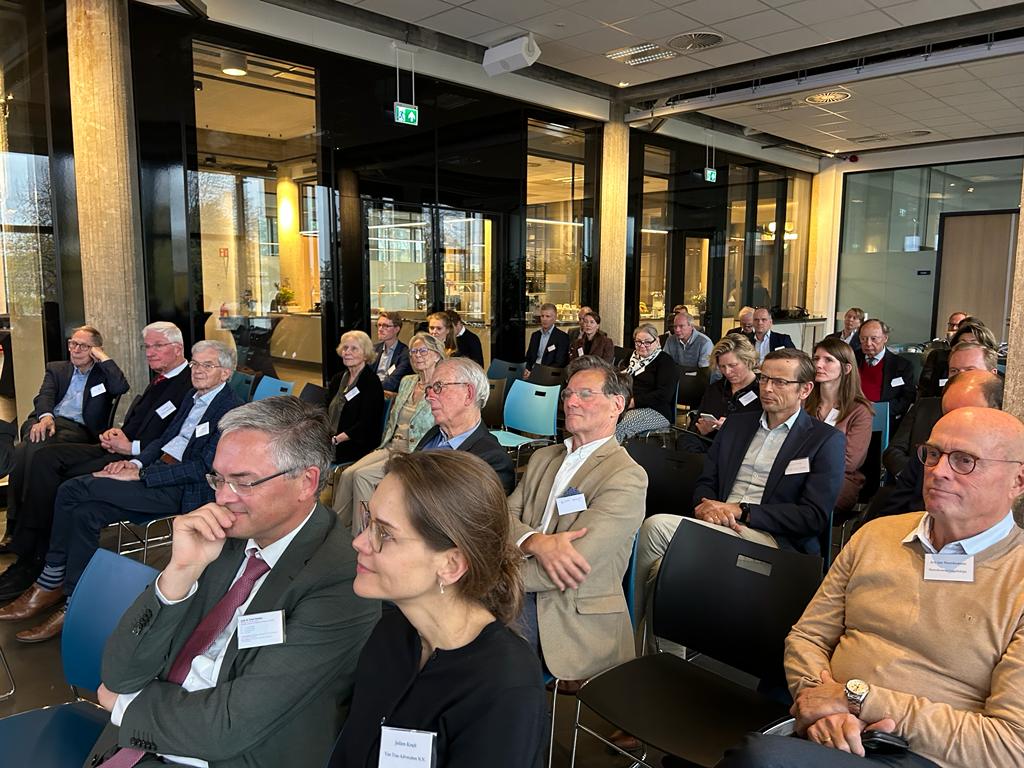Dutch MLA
On 2 November 2023 the Dutch Transport Law Association held a symposium on maritime law topics, in conjunction with its annual General Assembly Meeting.
The first speaker, Jan Teunissen , retired advocate at the Rotterdam Bar, discussed the proposal for a Wet invoering elektronisch vervoerbestand, a draft bill aimed at introducing the electronic transport record in legislation of the Netherlands. Before discussing the draft bill itself, Teunissen provided a general introduction of the subject matter: the functions of the bill of lading, the bill of lading as a transferable document, the Uncitral Model Law on Electronic Transferable Records (MLETR), the Rotterdam Rules, and legislative projects in other jurisdictions similar to the Dutch draft bill, in particular those in England & Wales, Germany and Singapore. Teunissen then explained that the wording of the draft bill created some confusion as it borrowed language from the Rotterdam Rules, without actually incorporating the Rotterdam Rules in the Dutch legislation. Teunissen warned that if the bill became law it would be unclear whether the Dutch statute law on contracts of carriage under a bill of lading (based on the Hague-Visby Rules) could properly apply mutatis mutandis to electronic transport records. Similarly, he expected problems in the application of Dutch statutory rules on private international law. Following criticism raised by Teunissen and others in the earlier online consultation phase, the Dutch government has decided the bill will be redrafted. A new draft is expected in the next weeks or months, depending somewhat on the outcome of the next parliamentary elections in the Netherlands.
The following speaker, Professor Frank Smeele (in the picture above) of the Erasmus University Rotterdam, discussed the new CMI project investigating the need for revising the CMI Collision Conventions (the 1910 Convention in particular, but also the 1952 Conventions). Smeele was chair of the committee of the Dutch Transport Law Association that recently drafted the reply to the first CMI questionnaire on the topic. Smeele discussed the relatively limited scope of application of the 1910 Convention itself (collision) and the rather wide application in the Netherlands of the principles of the Convention by means of legislative incorporation (any damage caused by a ship). He then addressed the fact that the 1910 Convention was unclear about the identity of the liable person. In the Dutch legislation the liability is channelled to the registered owner of the ship, whereas other jurisdictions opted for the operator of the ship. Smeele went on to discuss the peculiar doctrine on fault of the ship developed by the Dutch Supreme Court, and some modern day issues such as mandatory insurance, direct actions, jurisdiction and conflict of law.
The third and final speaker was Petra de Bruin (in the picture above), judge at the Rotterdam District Court, dealing with most injunction proceedings for the lifting of ship arrests and ship’s auctions. De Bruin discussed the Beijing Convention on the Judicial Sale of Ships” from the viewpoint of a Dutch judge. She discussed the history of the Beijing draft from CMI to IMO (‘compelling need’?) via the Hague Conference for Private International Law to Uncitral, and the current positioning of the European Union in respect of the ratification by its member states. De Bruin went on to discuss particular provisions of the Beijing Convention, particularly Articles 5, 8 and 9, which might cause problems in a Dutch setting.
All three presentations led to such lively debates that the moderator had difficulty in retrieving the microphone from some excited commentators in the audience. Fortunately, calm was restored during the rather uneventful General Assembly Meeting, followed by the usual drinks.
